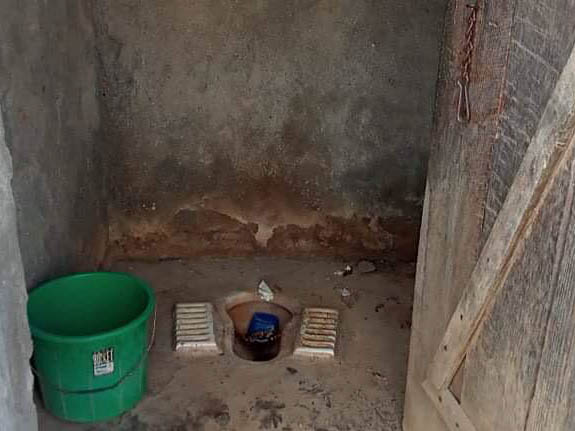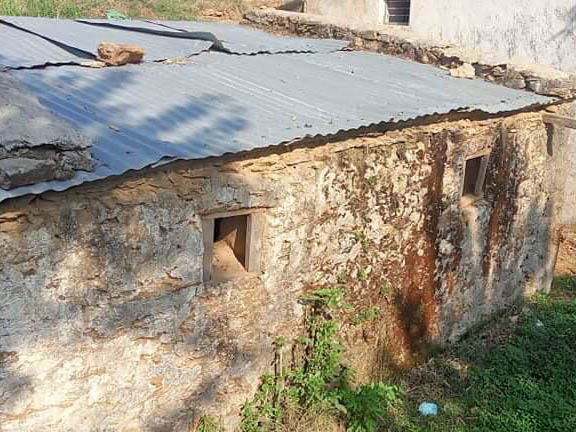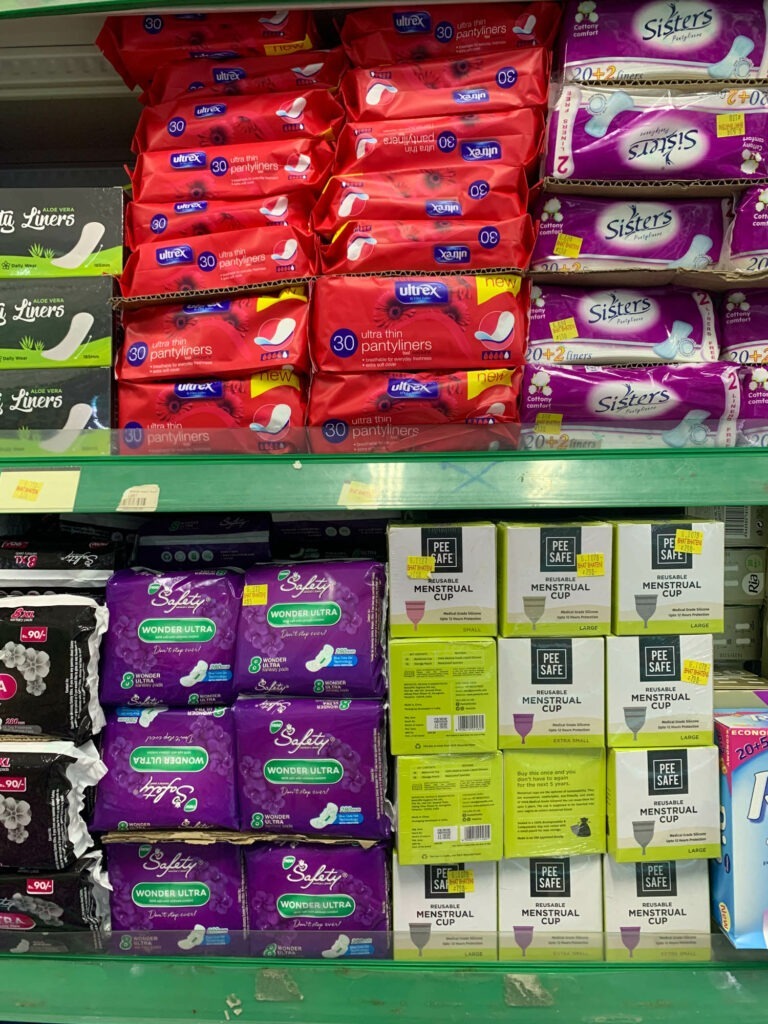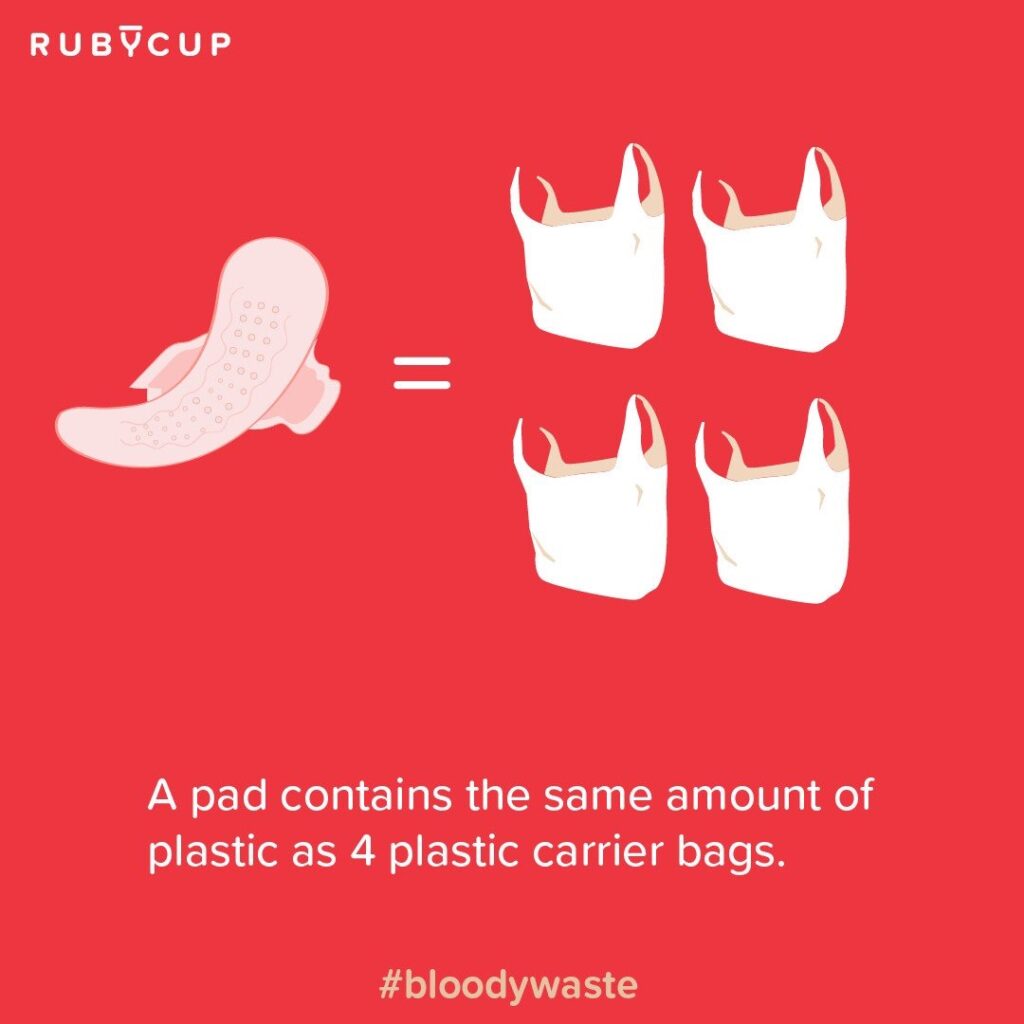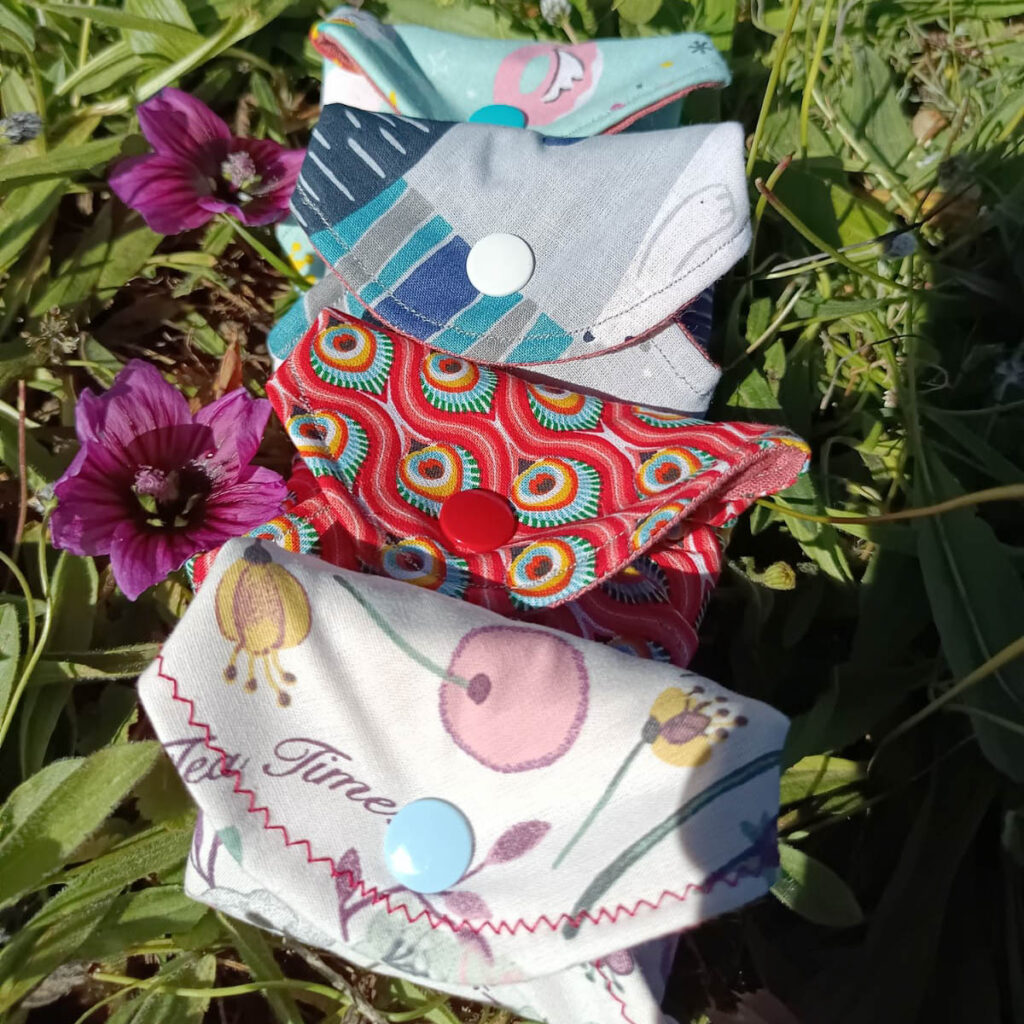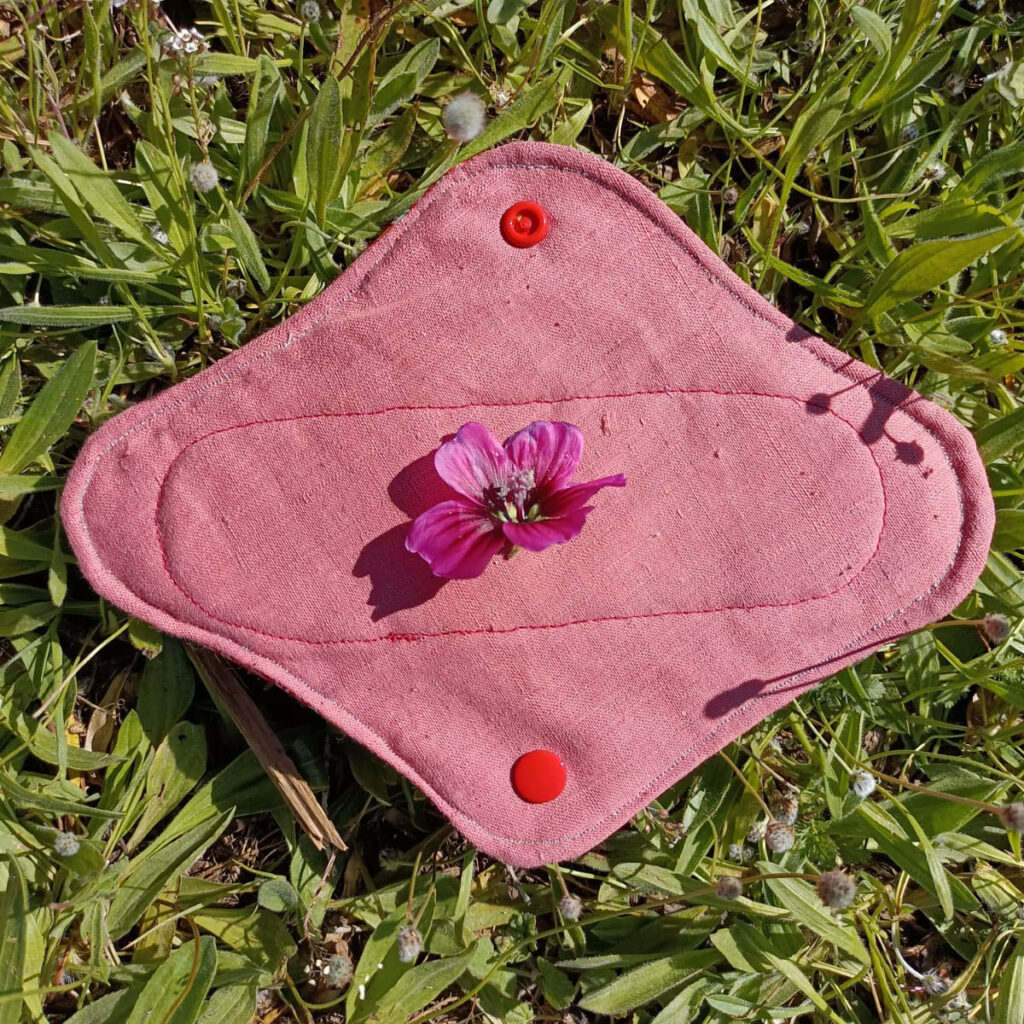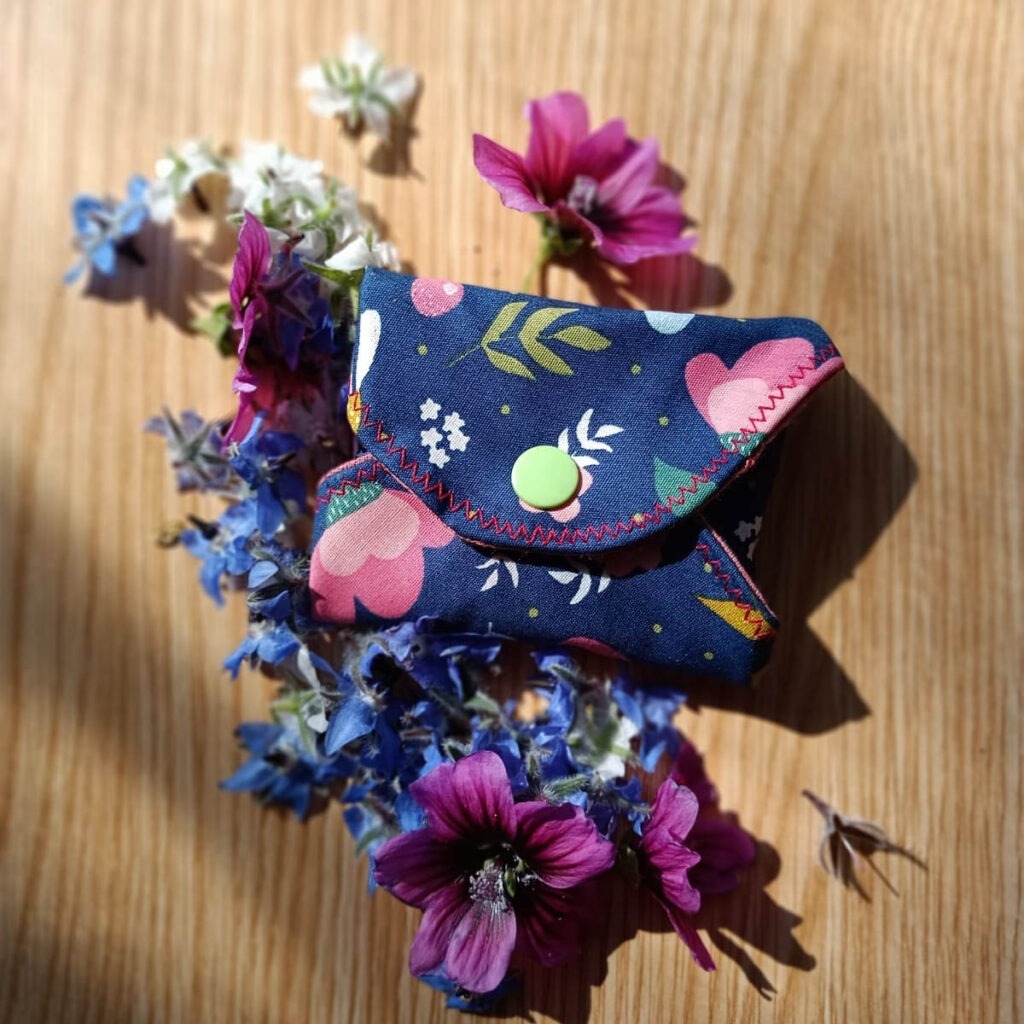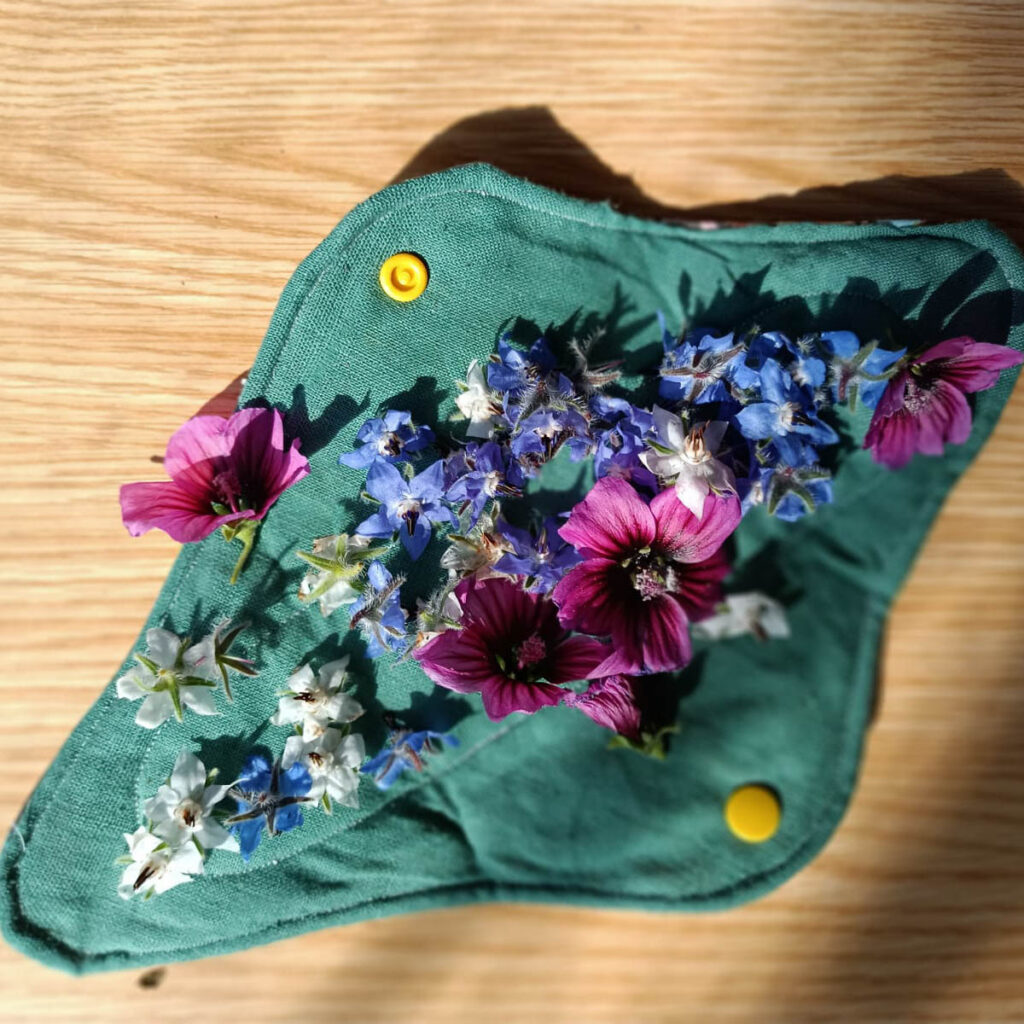What are we asking for? The idea is to bring menstrual health to all menstruating people on this planet, do we agree on that? But we cannot forget about this planet!
Asking for accessible menstrual products and not specifying that they should be reusable and environmentally friendly is to forget that we are part of a whole, it is to stop caring for ourselves and stop caring for the earth. Is that what we want? I swear not.
And I think it is no longer necessary to explain again the huge negative impact tampons and disposable pads have on us, and on the earth.
For those who do not know yet, I have been collaborating with @ngobeartsy for a long time, working in western Nepal offering workshops on menstrual and sexual health and handing out menstrual cups. Those who use it are delighted and despite the fact that access to water is sometimes complex, they manage to fill the bucket that we give them, sterilize the menstrual cup and wash themselves.
Two days ago, Clara, the founder of be artsy, sent me a voice message telling me the news in the area where we work. The schools had decided to start distributing disposable pads to menstruating students! The girls had told Rupa (coordinator of the project in Nepal) that they had started using these pads when they went to school. Rupa asked them worriedly what they do with them once they were used, the answer was to be expected: They left them in the forest, under a stone.
The photo you see is a bathroom in one of the schools where we work, Manisha (team mentor) sent it to us, when we asked to write this post. As you can see, there are no bins where to deposit the used pads, and even if there were, in this area of Nepal there is no waste management. Or it is thrown into the river, or on the forest, or it is buried or burned (in Spain the Disposable pads are also a problem, our waste management is quite lousy).
This reality does not only exist in Nepal, many areas of the planet do not manage their waste. And providing disposable pads as a measure to eradicate menstrual poverty is crazy! And even more so, when there are alternatives, viable, sustainable and that can even generate local work (many NGOs working on menstrual poverty have created workshops to employ women in sewing cloth pads for menstruating people in their localities).
Conclusion? Things can be done well, let’s not do them half badly, it is not necessary.
For real and sustainable menstrual health.
Text Beatriz San Roman, Translation by Clara Garcia Ortés
We need your help, please.
-Associate: – https://beartsy.org/associate /
–2021 crowdfunding: https://www.migranodearena.org/en/cause/fighting-chhaupadi-the-taboo-that-is-leading-to-the-deaths-of-young-girls-
-Teaming – 1 euro/month:
RatoBaltin: https://www.teaming.net/ratobaltinproject
Edufem to prevent early marriage: https://www.teaming.net/edufemproject
-Donorbox – Choose your own currency!
RatoBaltin: https://donorbox.org/againts-chhaupadi
Edufem to prevent early marriage: https://donorbox.org/edufem
Thanks!

